This article was medically reviewed by David Nazarian, MD. Dr. David Nazarian is a board certified Internal Medicine Physician and the Owner of My Concierge MD, a medical practice in Beverly Hills California, specializing in concierge medicine, executive health and integrative medicine. Dr. Nazarian specializes in comprehensive physical examinations, IV Vitamin therapies, hormone replacement therapy, weight loss, platelet rich plasma therapies. He has over 16 years of medical training and facilitation and is a Diplomate of the American Board of Internal Medicine. He completed his B.S. in Psychology and Biology from the University of California, Los Angeles, his M.D. from the Sackler School of Medicine, and a residency at Huntington Memorial Hospital, an affiliate of the University of Southern California.
This article has been viewed 454,115 times.
The common cold is a highly contagious virus that infects your nose and throat. Colds are very common, especially in children. You can expect a child to get a cold six to 10 times a year if in daycare or school; adults typically get a cold two to four times a year. Although it is usually not too harmful, with symptoms that include a runny nose, sore throat, watery eyes, mild headache, low-grade fever, fatigue, loss of appetite, congestion, and cough, it may not feel like so. Though there is no cure for the common cold (it is not treatable with antibiotics) and most people will recover in approximately a week or two. Through self-care measures, including getting rest and drinking plenty of fluids, you may feel more comfortable as your body fights off the infection.[1]
Steps
Treating Your Cold
-
1Drink plenty of fluids. Staying hydrated can help replace fluids you lose producing mucus or from a fever. Ensuring you consume enough liquids may help you feel better and get over the cold more quickly.[2]
- You can drink water, juice, clear broth, or even clear, non-caffeinated soft drinks.
- Avoid coffee or caffeinated teas and soft drinks because they can cause dehydration and exacerbate your symptoms.
-
2Eat chicken soup. Recent studies have shown that the long-time home remedy of chicken soup can decrease inflammation and reduce symptoms, congestion in particular. If you don't like chicken, you can always make a vegetable soup instead![3] Eating chicken soup as you can may minimize your symptoms and help you get over your cold more quickly.
- Chicken soup has anti-inflammatory properties and also temporarily speeds up the movement of mucus through the nose, which in turn relieves congestion.
- You don’t have to make your own chicken soup to get the benefits — store-bought, canned soup works just as well.
Advertisement -
3Avoid alcohol, cigarettes, and caffeine. Alcohol, caffeine, and tobacco products can exaggerate the symptoms of a cold. Avoiding these products while you are sick may make you feel better and reduce the duration of your symptoms.
-
4Gargle with a saltwater solution. Rinsing with a simple solution of saltwater can keep help relieve a sore and scratchy throat. Although the benefits are temporary, you can use this remedy as often as you need it to help yourself feel better.
- Make a salt solution by dissolving 1/4 – 1/2 tsp of salt in 4 – 8 oz of warm water.
- Gargle the solution for around 30 seconds, being careful not to swallow.
- It may hurt at first, but don't stop! You will feel much better afterward.
-
5Soothe with throat lozenges or sprays. Throat lozenges or sprays containing mild analgesics can help soothe a sore throat. Products that have eucalyptus or camphor may also help to relieve congestion.
- Suck on throat lozenges or use sprays every two to three hours, or according to the package or your doctor’s directions.
- Suck on the throat lozenge until it is completely gone. Don't try to chew it or swallow it whole, which can numb your throat and cause swallowing difficulties.
- You can buy throat lozenges and sprays at most pharmacies and some grocery stores and larger retailers.
-
6Use saline nasal spray. Nasal congestion is one of the peskiest symptoms of a cold. A saline nasal spray can help relieve congestion by loosening mucus.[4] It is safe to use on children and can generally be used as frequently as you wish.[5]
- You can get saline nasal drops over-the-counter at most pharmacies or large retailers. Make sure to follow the packing instructions or those of your doctor.
- For some infants, doctors recommend using a few drops in your baby’s nose and then suctioning each nostril.
-
7Relieve pain with over-the-counter (OTC) medication. You may have body aches and a headache with a cold. Consider taking an OTC medication (decongestants, nasal sprays, or antihistamines) to relieve pain and discomfort from a cold. It is important to take with care as directed on the package and remember that these are for temporary use.
- Take acetaminophen, ibuprofen, or naproxen sodium to minimize pain.
- Do not give children or teenagers aspirin, which is associated with Reye’s syndrome.
- Check with your healthcare provider before giving an infant or child any medication.
-
8Rest as much as possible. Getting enough rest can help relieve your symptoms.[6] If possible, stay home from work or school, especially if you have a fever or have taken medications that make you drowsy. Staying home from work or school can also prevent you from infecting other people with a cold.
- Take naps during the day if you can and make sure you get at least eight hours of sleep a night to help your body recover.
-
9Create a comfortable sleeping environment. Sleep in a bedroom that is comfortable, warm, and slightly humid. By controlling factors such as the temperature and humidity, having comfortable bedding, and keeping air circulating, you may help relieve the symptoms of a cold.
- Set temperature in bedroom to between 70 to 75°F (21 to 23.9°C), which can keep you warm and help you sleep.
- Use a cool-mist humidifier or vaporizer to moisten the air, which can help relieve congestion and coughing.[7] Make sure to clean the humidifier to prevent mold or bacteria growth.
- Breathing in steam from running a hot shower in a closed bathroom can help ease congestion.
- Use a fan to keep air circulating or open a window if it is not cold outside.
-
10Consider alternative medicine remedies. Many people rely on alternative medicine to prevent and relieve colds; however, studies have had mixed results regarding the effectiveness of vitamin C, Echinacea, or zinc as cold remedies. Use these remedies if you feel they work for you and make you feel better.
- There is limited evidence that taking Vitamin C at the onset of cold symptoms may reduce the duration of your symptoms.
- Some studies have shown that taking echinacea at the onset of a cold can reduce the severity and duration of symptoms.
- As with vitamin C and echinacea, studies on zinc have shown that it can reduce symptoms such as nausea and a bad taste in the mouth if taken within 24 hours after the onset of your cold.
- Do not use intranasal zinc, which can cause permanent damage to your sense of smell.
-
11See your doctor. A cold will usually resolve on its own and does not require a visit to the doctor. There are, however, some circumstances in which you should see your doctor. These include:
- If there is no improvement of your cold symptoms after 10 days.
- If you have a sore throat and a fever with no cold symptoms, you may have strep throat, a bacterial infection that requires an antibiotic.
- If you experience any of the following symptoms: high fever (over 101.3°F or 38.5°C for adults), severe or worsening symptoms, severe headache, vomiting, abdominal pain, chest pain, wheezing, shortness of breath, or trouble breathing. These symptoms indicate you may be developing or have a secondary infection such as pneumonia, sinusitis, or ear infection.
- Any infant three months old or younger who develops a cold or fever should always be seen by a healthcare professional.
Preventing Colds
-
1Recognize that there is no cure. Although there is no cure for the common cold, there are effective ways to help prevent it. Employing basic measures such as handwashing, cleaning surfaces, and covering your mouth can help minimize your risk of contracting it.
- Unlike the flu, there is no vaccine for the common cold.
- Antibiotics will not be effective in treating a cold, as a cold is caused by a virus and antibiotics treat bacterial infections.
-
2Wash hands often and thoroughly. One of the most effective ways to prevent a cold is by proper hand-washing techniques. This minimizes the spread of bacteria and the flu virus from surfaces that many people touch.
- Wash your hands in warm water with a mild soap for at least 20 seconds.
- Use hand sanitizer if soap and water are not available.
- Make sure to wash your hands after touching anything in crowded places, such as handles on public transportation.
-
3Cover your nose and mouth with tissues. Always cover both your nose and mouth with a tissue when you cough or sneeze. If you don’t have a tissue, cough or sneeze into the crook of your elbow to avoid contaminating your hands.
- Make sure to discard the tissue right away and then wash your hands.
- Covering your nose and mouth minimizes the risk of spreading your cold to those around you.
- Encourage others to cover their nose and mouth when coughing or sneezing.
-
4Avoid crowded spaces as much as possible. Colds are very contagious, especially for children, and spreads most easily in places where there are large crowds of people. Minimizing time in crowded spaces may reduce your risk of getting a cold.
- Avoid contact with infected individuals. Do not share utensils and other personal objects with someone who has a cold.
- If you have a cold, stay home to reduce the risk of spreading it to others.
-
5Disinfect surfaces and spaces. Germs spread easily in shared spaces such as bathrooms or on kitchen surfaces. Cleaning and disinfecting these spaces frequently may help prevent spreading the cold to other members of your family or your friends and colleagues.[8]
- Focus on spaces that everyone in your vicinity uses. This includes the toilet, bathroom sink, kitchen counters, and kitchen sink. You may also want to disinfect door handles.
- You can use any type of surface disinfectant available commercially.
Expert Q&A
-
QuestionHow can I decongest my sinuses when I have a cold?
 David Nazarian, MDDr. David Nazarian is a board certified Internal Medicine Physician and the Owner of My Concierge MD, a medical practice in Beverly Hills California, specializing in concierge medicine, executive health and integrative medicine. Dr. Nazarian specializes in comprehensive physical examinations, IV Vitamin therapies, hormone replacement therapy, weight loss, platelet rich plasma therapies. He has over 16 years of medical training and facilitation and is a Diplomate of the American Board of Internal Medicine. He completed his B.S. in Psychology and Biology from the University of California, Los Angeles, his M.D. from the Sackler School of Medicine, and a residency at Huntington Memorial Hospital, an affiliate of the University of Southern California.
David Nazarian, MDDr. David Nazarian is a board certified Internal Medicine Physician and the Owner of My Concierge MD, a medical practice in Beverly Hills California, specializing in concierge medicine, executive health and integrative medicine. Dr. Nazarian specializes in comprehensive physical examinations, IV Vitamin therapies, hormone replacement therapy, weight loss, platelet rich plasma therapies. He has over 16 years of medical training and facilitation and is a Diplomate of the American Board of Internal Medicine. He completed his B.S. in Psychology and Biology from the University of California, Los Angeles, his M.D. from the Sackler School of Medicine, and a residency at Huntington Memorial Hospital, an affiliate of the University of Southern California.
Diplomate, American Board of Internal Medicine Using an over-the-counter nasal saline spray, using a humidifier or vaporizer at night, drinking plenty of fluids, and placing a warm compress on your face can all help with congestion. Over-the-counter medications that contain Pseudoephedrine can also help.
Using an over-the-counter nasal saline spray, using a humidifier or vaporizer at night, drinking plenty of fluids, and placing a warm compress on your face can all help with congestion. Over-the-counter medications that contain Pseudoephedrine can also help.
References
- ↑ http://www.mayoclinic.org/diseases-conditions/common-cold/basics/definition/con-20019062
- ↑ David Nazarian, MD. Diplomate, American Board of Internal Medicine. Expert Interview. 26 March 2020.
- ↑ https://www.ncbi.nlm.nih.gov/pubmed/11035691
- ↑ David Nazarian, MD. Diplomate, American Board of Internal Medicine. Expert Interview. 26 March 2020.
- ↑ http://www.webmd.com/cold-and-flu/cold-guide/nasal-sprays-cold-relief
- ↑ David Nazarian, MD. Diplomate, American Board of Internal Medicine. Expert Interview. 26 March 2020.
- ↑ David Nazarian, MD. Diplomate, American Board of Internal Medicine. Expert Interview. 26 March 2020.
- ↑ http://www.cdc.gov/flu/pdf/freeresources/updated/everyday_preventive.pdf
About This Article
To prevent colds, make sure you wash your hands for at least 20 seconds, and cover your mouth whenever you sneeze or cough. Avoid public spaces as much as possible and disinfect surfaces in your home to reduce your potential exposure. If you do catch a cold, remember to drink plenty of fluids and get plenty of rest. You can also use lasenges, nasal sprays, and other over the counter medications to help with your symptoms. For more at-home treatment options, and to learn when to consult your doctor, scroll down!
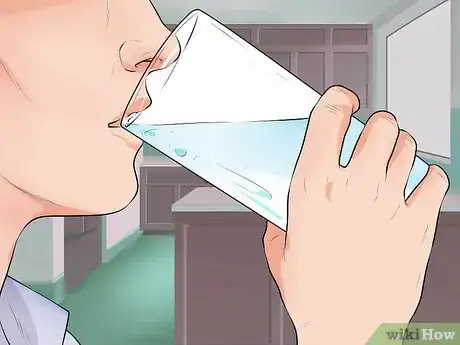

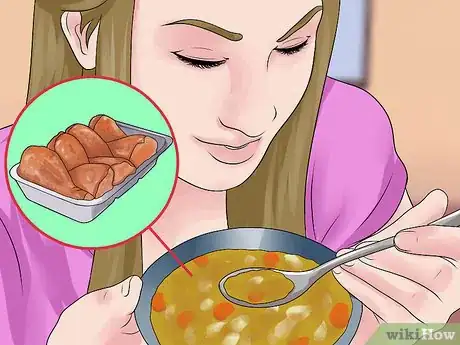
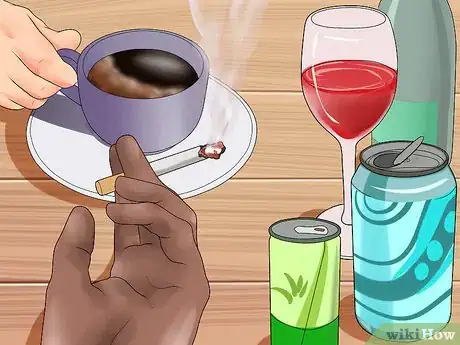
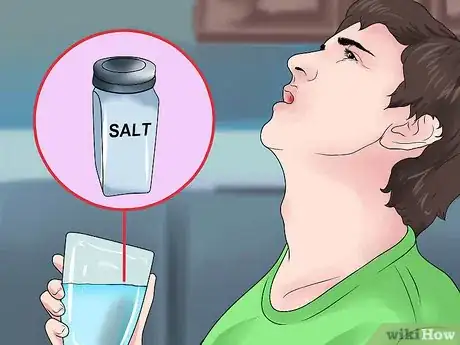
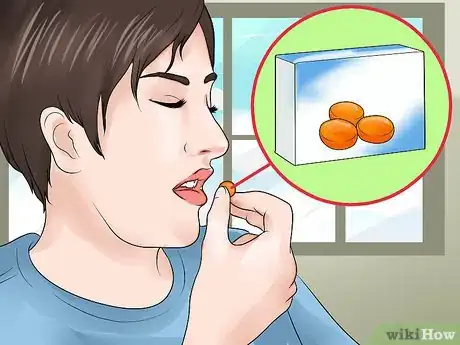
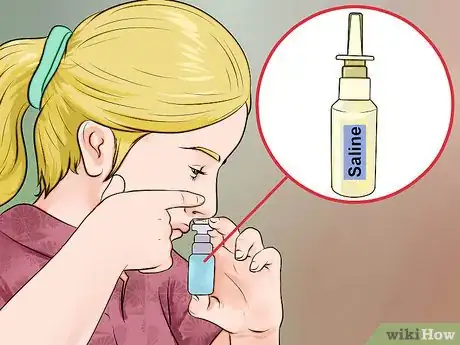
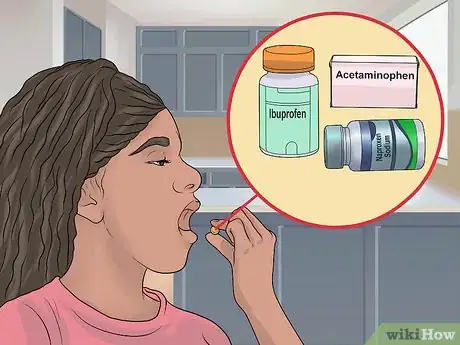

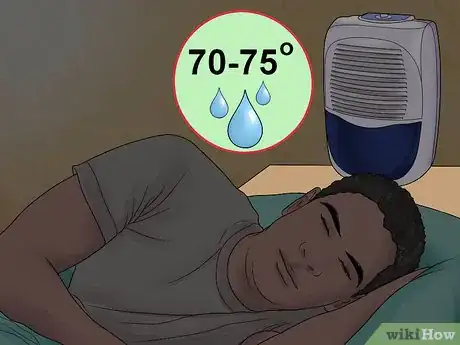
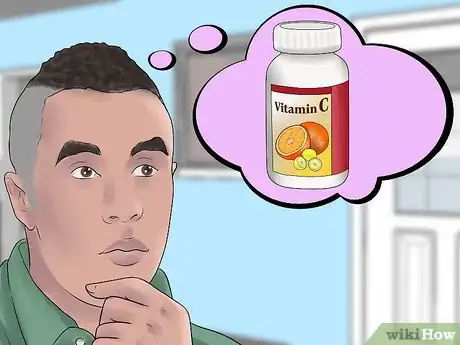
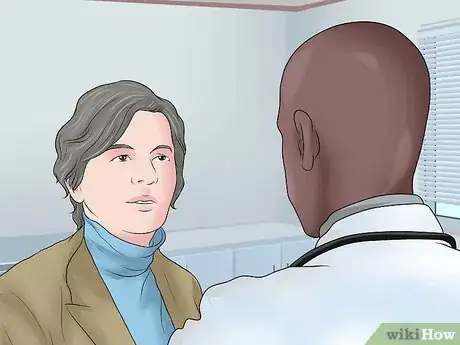
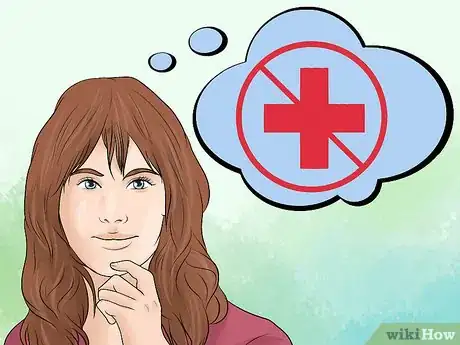
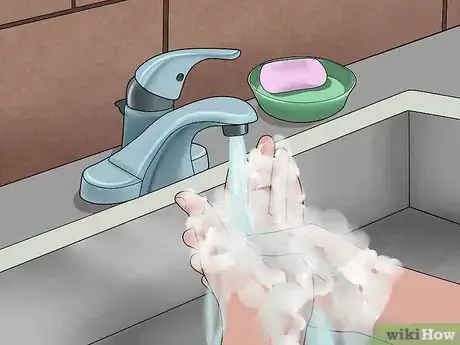
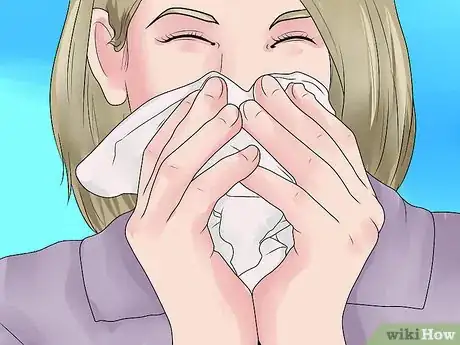
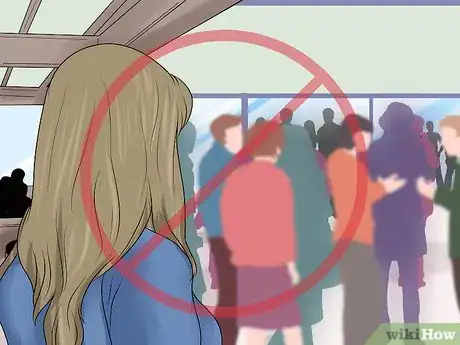
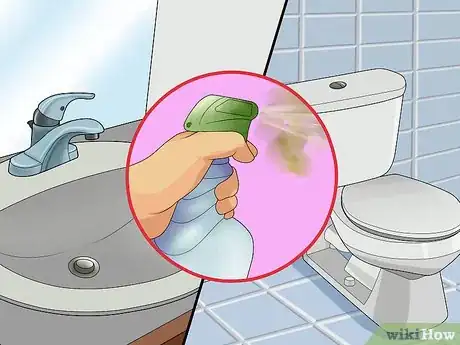
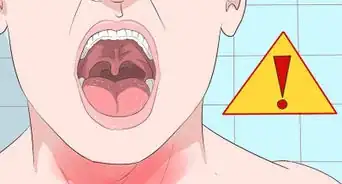
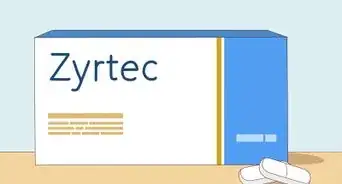
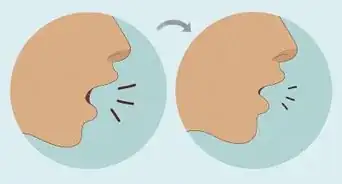
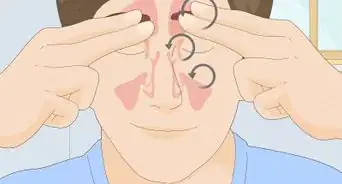


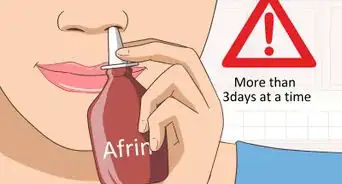

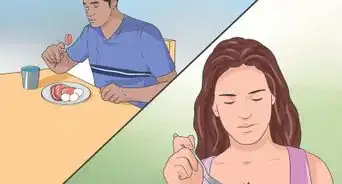
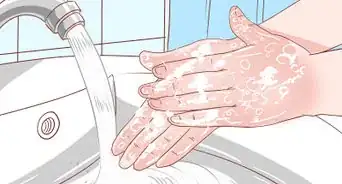
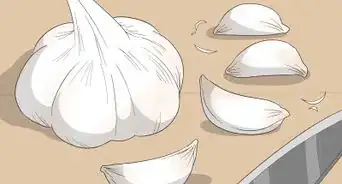
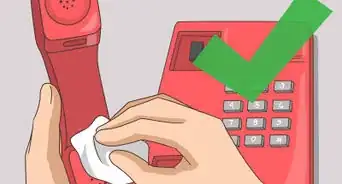
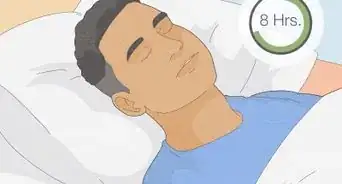
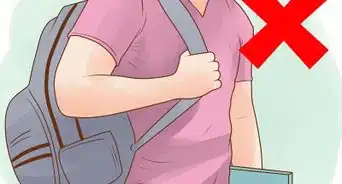








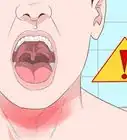


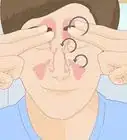



































Medical Disclaimer
The content of this article is not intended to be a substitute for professional medical advice, examination, diagnosis, or treatment. You should always contact your doctor or other qualified healthcare professional before starting, changing, or stopping any kind of health treatment.
Read More...